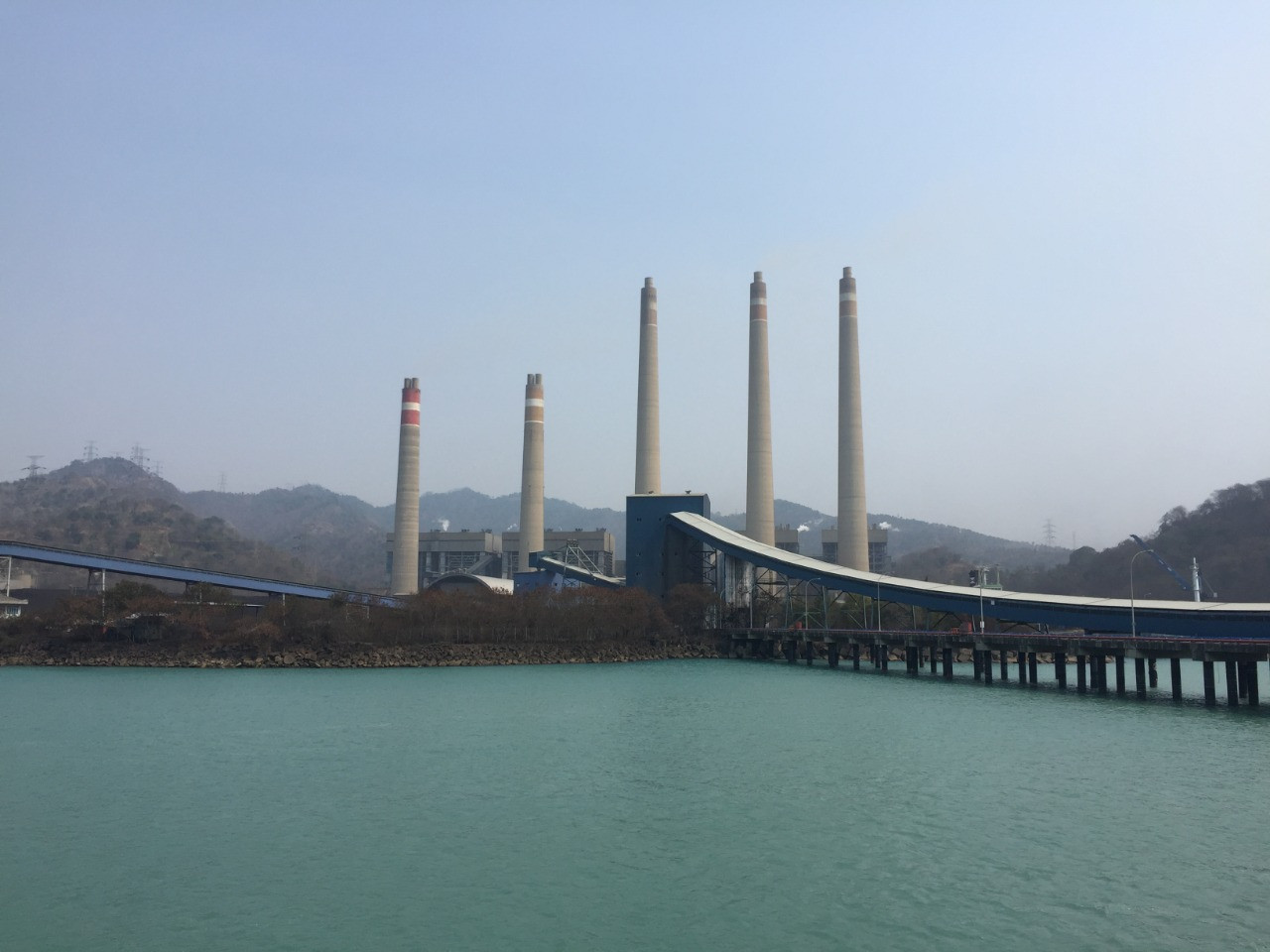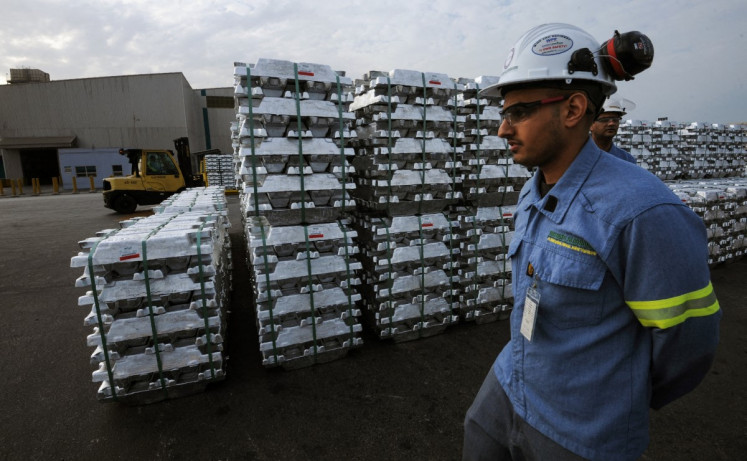Popular Reads
Top Results
Can't find what you're looking for?
View all search resultsPopular Reads
Top Results
Can't find what you're looking for?
View all search resultsNew dawn for carbon trading
Putting a price on carbon will be an issue for Indonesian industry, as more than 80 percent of the sector relies on fossil fuel power plants and about 50 percent on coal-fired plants.
Change text size
Gift Premium Articles
to Anyone
 The five chimney stacks of the 4,025 MW Suralaya coal-fired power plant, one of the largest of its kind in Indonesia, tower above Cilegon, Banten, on Sept. 24, 2019. The two shorter stacks channel exhaust from units one through four of the plant, while the three taller stacks channel exhaust from units five through seven. (JP/Norman Harsono)
The five chimney stacks of the 4,025 MW Suralaya coal-fired power plant, one of the largest of its kind in Indonesia, tower above Cilegon, Banten, on Sept. 24, 2019. The two shorter stacks channel exhaust from units one through four of the plant, while the three taller stacks channel exhaust from units five through seven. (JP/Norman Harsono)
D
espite the government’s reluctance to end its dependence on coal, it has shown commitment to climate causes ahead of the upcoming 26th United Nations Climate Change Conference (COP26) in Glasgow, Scotland, the United Kingdom.
After announcing its commitment to achieving net-zero emissions by 2060, the government has announced a plan to establish an emissions exchange mechanism for the first time in the country.
The draft regulation seeks to implement a provision for carbon emissions taxation from the recently passed Harmonized Tax Law (HPP).
Coal-fired power plants will be the first target of the regulation, which is scheduled to come into effect in April 2022, before a full-scale carbon trading scheme is established in 2025.
The head of the Finance Ministry’s Fiscal Policy Agency, Febrio Nathan Kacaribu, said the draft regulation stipulated a cap and trade system and that an emissions cap would be designated for each of the country’s coal plants. Plants expecting to exceed the cap would have to buy carbon credits from those that expected to remain below it. There is also a plan to price carbon emissions at about Rp 27,200 (US$1.9) per ton of carbon dioxide equivalent (CO2e), less expensive than in most other countries.
Experts have criticized the proposed policy as too lenient, saying it will not get the country any closer to its emissions reduction pledges under the Paris Agreement.
Concerns that the mechanism may also increase energy prices have been voiced. Amid an ongoing global energy shortage as world economies recover from the pandemic recession, putting a price on carbon will be a problem for Indonesian industry, as more than 80 percent of the sector relies on fossil fuel power plants and about 50 percent on coal-fired plants.
A reliable energy supply also remains a problem for Indonesia, making the execution of the policy challenging.
Alongside developing an effective carbon trading system, the government should prioritize incentives for new and renewable energy sources.
The latest long-term electricity procurement plan (RUPTL) of state-owned electricity producer PT PLN seeks to have renewable energy plants account for 56.1 percent of a total of 40.57 GW of new power plant capacity by 2030.
But renewable energy investment is not growing quickly. The Energy and Mineral Resources Ministry has reported that renewable energy investment has reached $1.12 billion so far this year, 54 percent of the $2.04 billion full-year target. That $1.12 billion is dominated by investment in geothermal energy and bioenergy.
These challenges should not discourage the government or private sector in their quest for low-carbon development. Indonesia is a thriving market that has proven its resilience during the pandemic. What they should bear in mind is that pricing and taxation policies related to the climate are not meant to put undue barriers on trade and the economy. They are meant to encourage movement away from certain energy resources that must be abandoned over time.
This moment is also a test of whether Indonesia can manage and conserve its natural resources. If it fails now, it will miss another opportunity to emerge as one of the world’s largest economies and bring prosperity to all its citizens.









